East of Eden (1955): the fight between virtue and vice | la lucha entre la virtud y el vicio
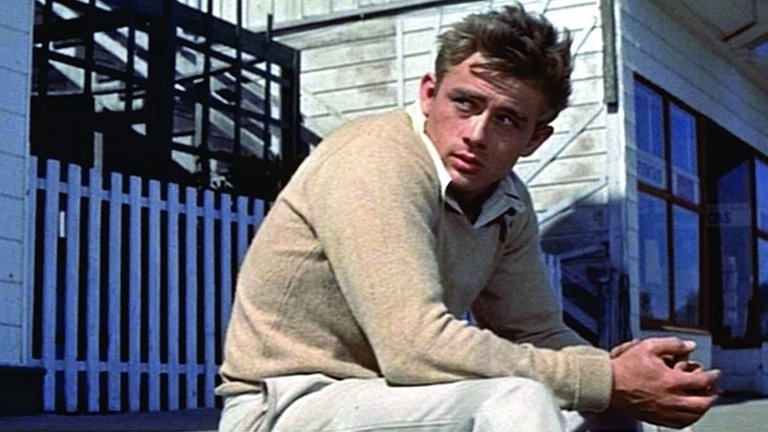
Protagonizada por James Dean
A voracious reader and self-confessed movie lover, I belong to that group of people who like to read the book first and then watch the film adaptation. It is true that in some cases I don't read the book first (due to ignorance or difficulty in accessing it), but in most cases it has been possible for me to enjoy first the paper and then the screen. And the truth is, I prefer it that way because the visual experience is deeper.
Lector voraz y cinéfilo confeso, pertenezco a ese grupo de personas a quienes nos gusta primero leer el libro y después ver la adaptación cinematográfica. Es cierto que en algunos casos no comienzo por la lectura (por desconocimiento o dificultad para acceder a ella), pero en la mayoría de los casos me ha sido posible disfrutar primero del papel y luego de la pantalla. Y la verdad, lo prefiero así porque la experiencia visual es más profunda.
East of Eden directed by Elia Kazan and starring the iconic James Dean, is a film with a script by Paul Osborn based on the novel by John Steinbeck, one of the great American storytellers and winner of the Nobel Prize for Literature. Steinbeck is responsible for other notable works that have also produced great films such as Of Mice and Men, The Grapes of Wrath and The Pearl, to name only the most famous. I had East of Eden on my list for quite some time, and as I was finally able to get my hands on a copy of the novel, I read it so I could see the movie, one of three films starring James Dean and the only one that premiered while he was alive. Let's remember that Dean died in a tragic accident just as he had finished filming Giant, which would be released later, like Rebel Without a Cause. The young actor received Oscar nominations for both roles and was not only the first actor to be nominated posthumously but also the only actor with two posthumous nominations, which helped bolster the legend of the incredible career that he might have had if he hadn't had that accident and died so young. He was just 24 years old.
East of Eden dirigida por Elia Kazan y protagonizada por el icónico James Dean, es una película con guión de Paul Osborn basado en la novela de John Steinbeck, uno de los grandes narradores norteamericanos y ganador del Premio Nobel de Literatura. Steinbeck es el responsable de otras obras notables que también han dado grandes películas como lo son Of Mice and Men, The Grapes of Wrath y The Pearl, por nombrar sólo las más famosas. Tenía East of Eden en mi lista desde hacía bastante tiempo, así que como finalmente pude hacerme con un ejemplar de la novela, me la leí para poder ver la película, una de las tres cintas protagonizadas por James Dean y la única que se estrenó mientras vivía. Recordemos que Dean falleció en un trágico accidente justo cuando había terminado el rodaje de Giant, la cual se estrenaría después, al igual que Rebel Without a Cause. El joven actor recibió nominaciones a los premios Oscar por ambos papeles y no sólo fue el primer actor en ser nominado de manera póstuma sino que ha sido el único con dos nominaciones después de fallecido, lo que ayudó a reforzar la leyenda de la increíble carrera que podría haber tenido de no haber tenido aquel accidente y haber muerto tan joven. Tenía apenas 24 años.
In East of Eden, Dean plays Caleb Trask, "Cal", a somewhat wild and violent young man who competes with his brother Aron for their father's affections. Aron is something like the good son, with impeccable behavior, a lovely girlfriend and a great future ahead of him, while Cal is the black sheep, not because he is bad but because he lives in perpetual conflict with himself and although the only thing he seeks is the approval and affection of his father Adam, he only gets the opposite.
En East of Eden, Dean interpreta a Caleb Trask, "Cal", un joven algo salvaje y violento que compite con su hermano Aron por el afecto de su padre. Aron es algo así como el buen hijo, de comportamiento intachable, con una novia encantadora y un gran futuro por delante, mientras que Cal es la oveja negra, no porque sea malo sino porque vive en perpetuo conflicto consigo mismo y aunque lo único que busca es la aprobación y el cariño de su padre Adam, sólo consigue lo contrario.
As in the book, the film is set in the Salinas Valley, California, but the novel covers the story of three generations over more than fifty years, from the 19th century to the start of World War I, while that the film is set only in the latter. I understand that adaptations are usually just that and that due to time and format issues the film can never tell everything, but the truth is that there were important aspects of the story that did not make it to the big screen. For example, the entire history of the Hamilton family and the importance that Samuel Hamilton had in the formation and development of the paternity of Adam Trask; Adam's father and brother, Cyrus and Charles, whose relationships heralded those that Adam himself would have with his sons; the dark strength of Cathy's character, perhaps the most powerful character in the book; the presence of Lee, Adam's simple but wise servant; none of that appears in the film and it is because the film covers only the fourth and last part of the novel, when Adam moves to Salinas with his children. Trying to explain all of the above or convey its essence without even having two of the most important characters in 75% of the novel is an impossible task. I understand that.
Tal como en el libro la película se ambienta en el Valle de Salinas, en California, pero la novela abarca la historia de tres generaciones a lo largo de más de cincuenta años, desde el siglo XIX hasta el inicio de la Primera Guerra Mundial, mientras que la película se ambienta sólo en esto último. Entiendo que las adaptaciones suelen ser sólo eso y que por temas de tiempo y de formato la película nunca puede contarlo todo, pero la verdad es que hubo aspectos importantes de la historia que no pasaron a la gran pantalla. Por ejemplo, toda la historia de la familia Hamilton y la importancia que tuvo Samuel Hamilton en la formación y desarrollo de la paternidad de Adam Trask; el padre y el hermano de Adam, Cyrus y Charles, cuyas relaciones anunciaban las que tendría en propio Adam con sus hijos; la fuerza del carácter oscuro de Cathy, quizás el personaje más poderoso del libro; la presencia de Lee, el sencillo pero sabio criado de Adam; nada de eso aparece en la película y es porque el film abarca solamente la cuarta y última parte de la novela, cuando Adam se muda a Salinas con sus hijos. Intentar explicar todo lo previo o transmitir su esencia sin ni siquiera contar con dos de los personajes más importantes del 75% de la novela es tarea imposible. Eso lo entiendo.
In fact, I liked the point they selected to start the story and the period from there to the end. What bothered me a little is that by adapting the story and cutting parts of it, they also changed important traits in the characters, such as some motivations, backgrounds and desires, which is why I think that those who only see the film will have an interpretation of each character very different from what Steinbeck wanted to convey in his novel. For example, in the book Aron Trask is calmer than Cal, things go well for him, but he also has internal conflicts and is weaker and more sensitive than his brother, aspects that are not shown in the movie. And like that, there are many others. Now, if I forget about the book and focus on the hours in front of the screen, yes, the story is good, interesting and strong, but I can't help but think that highlighting or considering other aspects of the original story (even if they weren't shown) ) would have been even better.
De hecho me gustó el punto que seleccionaron para comenzar la historia y el lapso que abarca desde allí hasta el final. Lo que me incomodó un poco es que al adaptar la historia y cortarle partes también cambiaron rasgos importantes en los personajes, como algunas motivaciones, antecedentes y deseos, razón por la cual creo que quienes sólo vean la película van a tener una interpretación de cada personaje muy diferente a la que quiso transmitir Steinbeck en su novela. Por ejemplo, en el libro Aron Trask es más calmado que Cal, le salen las cosas bien, pero también tiene conflictos internos y es más débil y sensible que su hermano, aspectos que no se muestran así en la película. Y como ese, hay muchos otros. Ahora, si me olvido del libro y me centro en las horas frente a la pantalla, sí, la historia resulta buena, interesante y tiene fuerza, pero no puedo evitar pensar que resaltando o considerando otros aspectos de la historia original (aunque no se mostrasen) habría sido todavía mejor.
East of Eden is a story with biblical echoes, mainly the story of Cain and Abel, whose central message is the permanent internal struggle of man who is torn between good and evil, between virtue and vice , in a world that seems to promote the latter and move man away from the right path. The performances are very good, James Dean's in particular, as are the direction and photography; It is not for nothing that the Library of the Congress of the United States considered this work as "culturally, historically and aesthetically significant" and preserves it in the National Film Registry along with other classics such as 12 Angry Men, Casablanca and Citizen Kane, to name a few. Despite its differences with the novel, the film is worth watching, appreciating the story and enjoying the talent of James Dean, one of the icons of the golden age of Hollywood, as much as Marilyn Monroe and Audrey Hepburn, have any of you seen a movie of hiss? Have you read any John Steinbeck novels? I read you in the comments.
East of Eden es una historia de ecos bíblicos, principalmente del relato de Caín y Abel, cuyo mensaje central es la permanente lucha interna del hombre que se debate entre el bien y el mal, entre la virtud y el vicio, en un mundo que parece propiciar este último y alejar al hombre del camino recto. Las actuaciones son muy buenas, la de James Dean en particular, como también lo son la dirección y la fotografía; no por nada la Biblioteca del Congreso de Estados Unidos consideró esta obra como "cultural, histórica y estéticamente significativa" y la preserva en el National Film Registry junto a otros clásicos como 12 Angry Men, Casablanca y Citizen Kane, por nombrar algunas. A pesar de sus diferencias con la novela, vale la pena ver la película, apreciar la historia y disfrutar del talento de James Dean, uno de los íconos de la era dorada de Hollywood, tanto como Marilyn Monroe y Audrey Hepburn, ¿alguno de ustedes ha visto una película suya? ¿han leído alguna novela de John Steinbeck? Los leo en los comentarios.
Reviewed by | Reseñado por @cristiancaicedo
Other posts that may interest you | Otros posts que pueden interesarte:
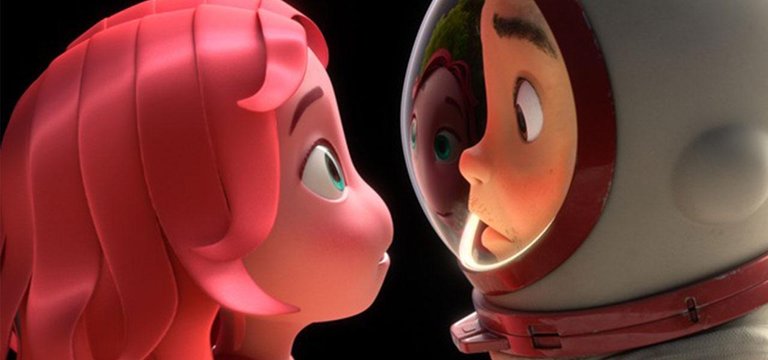 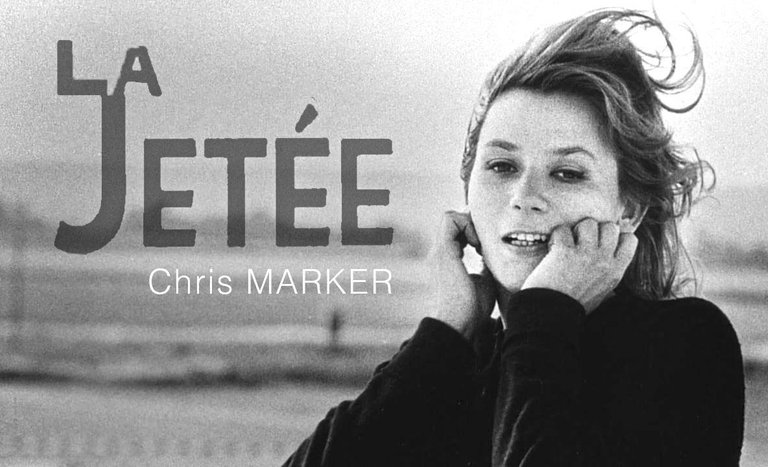 |
|---|
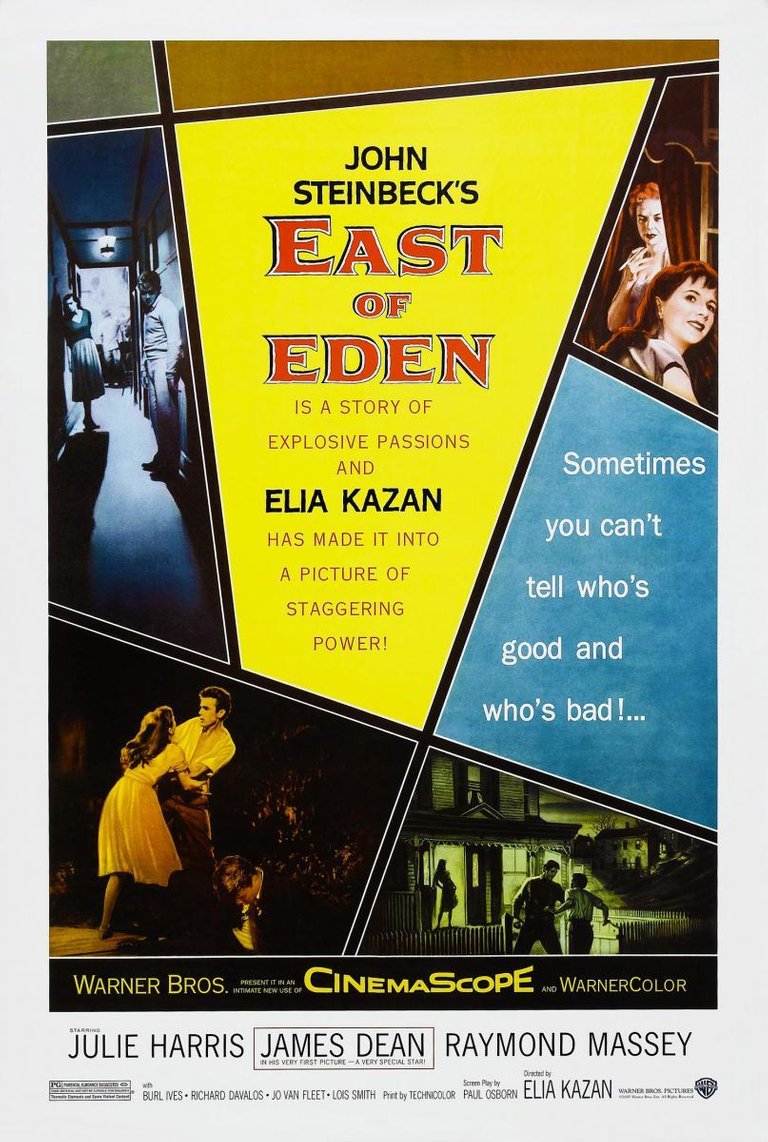
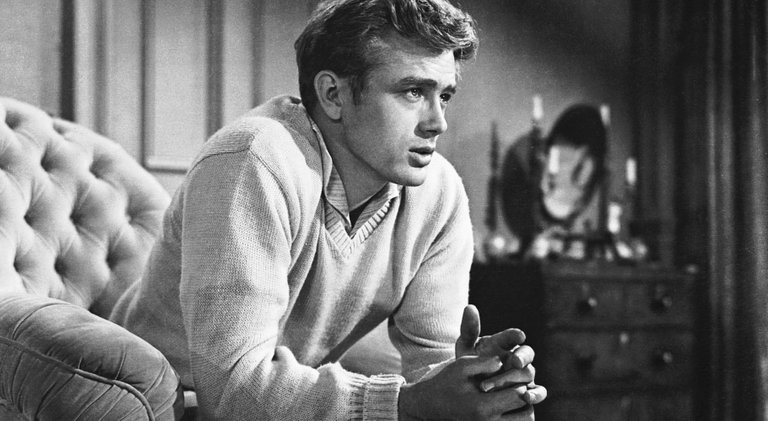

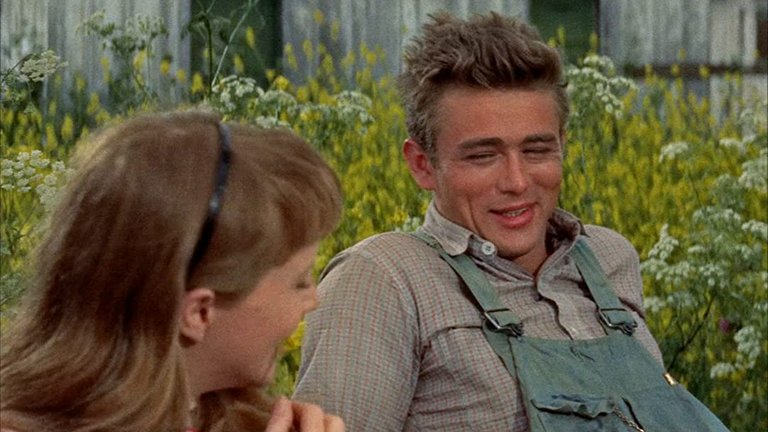
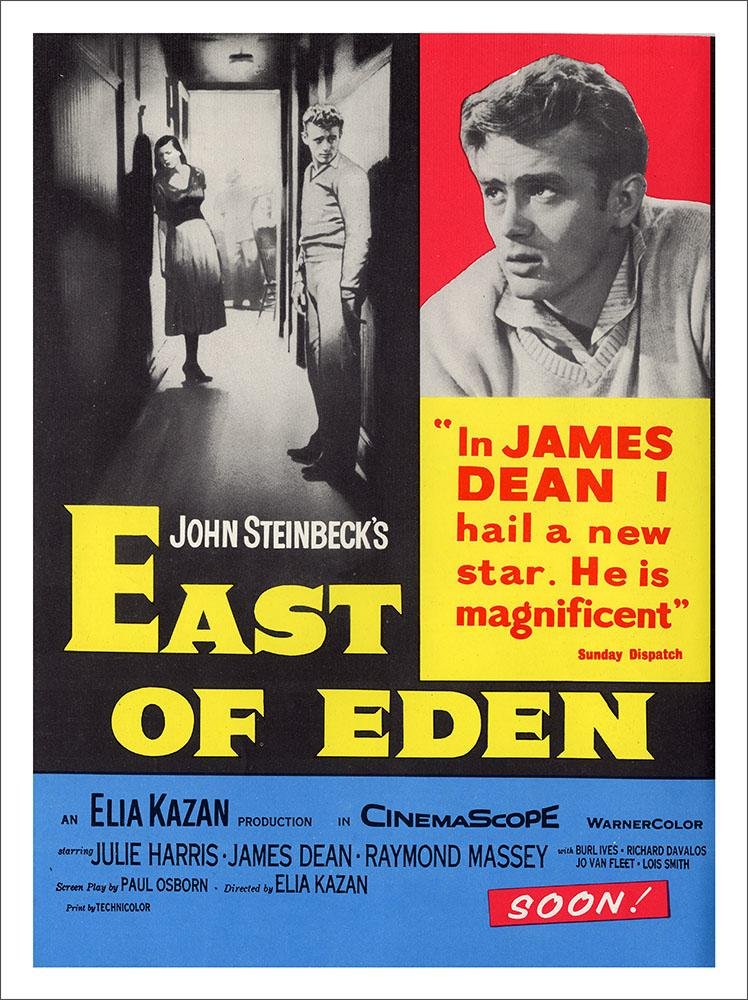
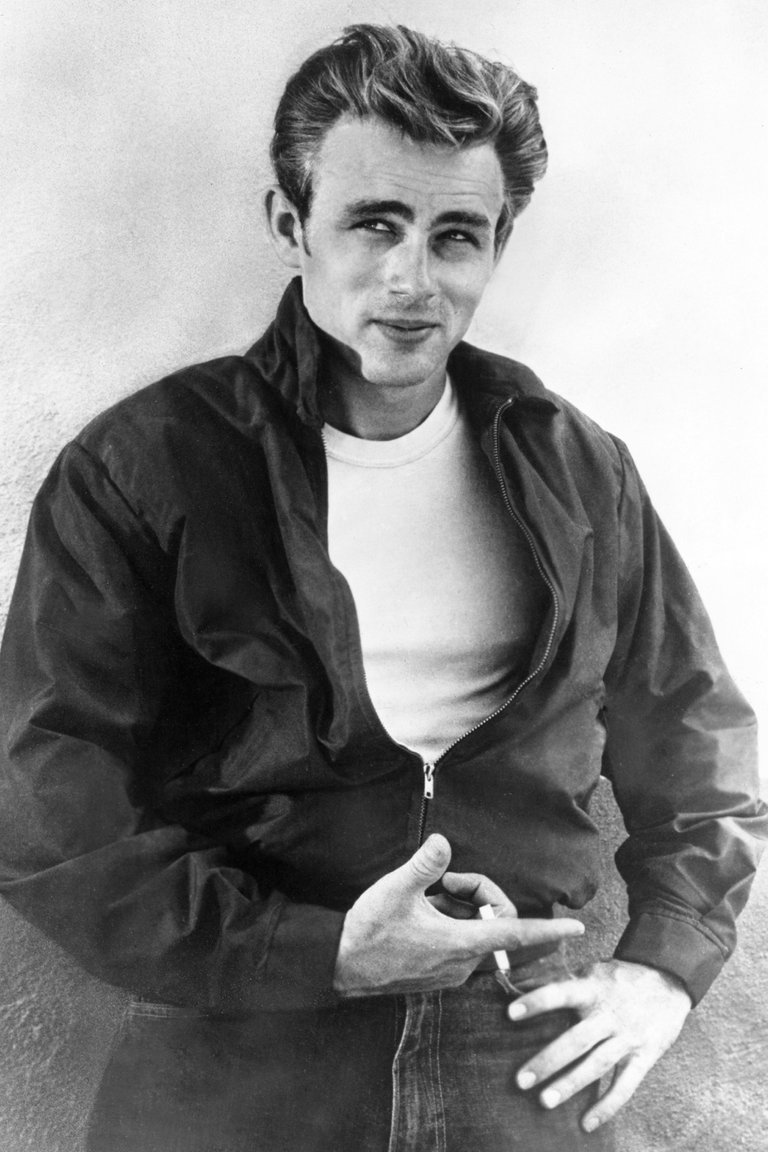
Funny thing is this was filmed west of Eden
Posted using CineTV